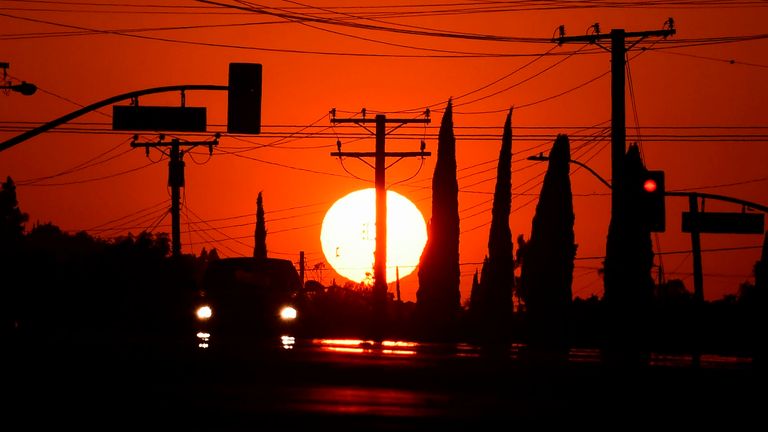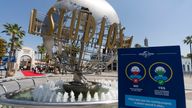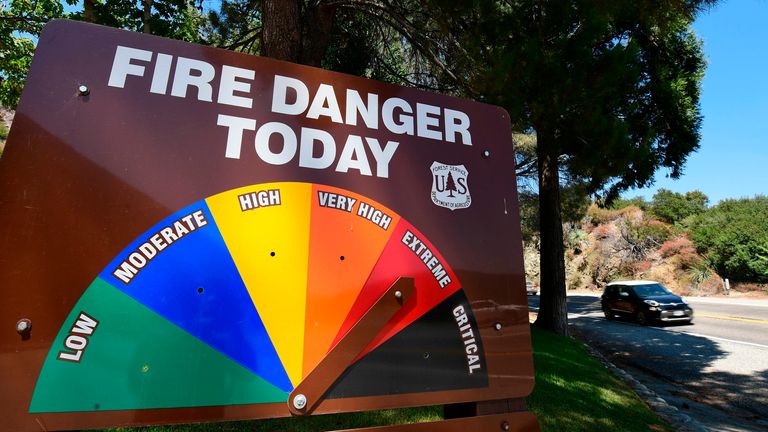LA is used to apocalyptic scenes in films - but this heatwave shows real impact of climate change
The Los Angeles neighbourhood of Woodland Hills saw almost 50C on Sunday, the hottest temperature ever recorded in the city.
Tuesday 8 September 2020 08:03, UK
There have always been a few things that Los Angeles residents had good reason to worry about.
The traffic, the wildfires, being button-holed in the coffee shop by a would-be movie scriptwriter. And the earthquakes, of course.
But the weather has rarely been cause for concern.
The climate, always seemingly sunny and in the mid-70s Fahrenheit (mid-20s Celsius) is boringly, reassuringly predictable.
This week's heatwave then - the second in less than a month - has been a brutal wake-up call. And everyone, in California and beyond, needs to take notice.
"One isolated heatwave does not climate change make," said Julien Emile-Geay, an associate professor in earth sciences at the University of Southern California.
"But when they multiply throughout the season and year after year and there's more of them and they're getting hotter and hotter, as is the case, that's definitely a sign of climate change.
"The message from this heatwave is keep paying attention even though we have other problems our hands."
Until recently, the LA neighbourhood of Woodland Hills, close to the mountains in the San Fernando Valley, was most notable as being home to rapper Dr Dre. The temperature reading there on Sunday, almost 50C (122F), was literally breath-taking.
Woodland Hills is now officially the hottest place ever recorded in Los Angeles but records were tumbling across the county, even close to the cooling effects of the Pacific Ocean.
It was surprising then that quite so many of the people we spoke to on the Labor Day holiday, the unofficial end of summer for Americans, dismissed the possibility that climate change was the reason for the rising temperatures.
"I just think it's a natural process," one woman told us. "I don't know if it's because of what we're doing to the earth. It's just a natural process, it's just getting hotter, I think it's part of nature."
The statistics show an undeniable warming trend but, as another beach-goer pointed out, there is more at play: "I think it probably depends on your political party. We probably agree its climate change, we haven't seen these temperatures this high ever, but the political right will tell you it's not. It depends on who you ask."
:: Subscribe to Divided States on Apple Podcasts, Google Podcasts, Spotify, Spreaker
That would be a depressing truth even if this were not an election year. But with everything else that will drown out discussion of climate change before polling day in November, public apathy and division worries the scientific community.
And experts point to the impact to people's health of increased temperatures, poorer air quality and the stress of fighting pre-existing conditions in a hotter climate.
Extreme heat is already said to be the deadliest by-product of global warming, not hurricanes or wildfires.
There is a lot to be worried about - and the scorching heat of Los Angeles is an alarm bell.
The City of Angels has played host to plenty of apocalyptic scenes over the years. Thankfully most have been on movie screens. For many, the impact of climate change on their city is now very, very real.





